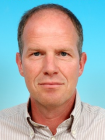prof. dr. K.R. (klaas) Timmermans

Klaas Timmermans is coordinator of the 5 ECTS master course Marine Ecosystems services under Global Change (WMLS15002)
OBJECTIVES: Global population growth enhances pressures of humanity to use marine resources in the deep seas, coastal areas and delta’s. Simultaneously, global change processes impose threats to the ecosystems that provide valuable services. This course provides fundamental knowledge and understanding of i) the concept of ecosystem services, ii) which services are provided by different marine ecosystems in relation to their ecosystem functions, iii) mechanisms behind the main anthropogenic and global change stressors that threaten ecosystem functions/services, iv) opportunities to benefit from ecosystem services under conditions of global change. Students will acquire practical skills in studying global change processes and quantifying ecosystem services. Students will develop a critical reflective attitude on how to deal with coastal management for example in balancing preserving and unlocking ecosystem functions and services and determining climate related and non-climate related drivers.
OBJECTIVES: The course includes classroom lectures, practicals and field trips with practicals in unique research facilities at NIOZ, such as the SeaweedCentre (Texel) and wave-flume (Yerseke). The lectures will consist of 4 blocks. The first block, the concept of ecosystem services (ES) will be introduced, highlighting the importance of ES for marine ecosystems. The second block focuses on the functioning of those marine ecosystems that provide important ES, from the deep sea to shallow coastal areas including delta’s. The third block provides fundamental knowledge on the threats to marine ecosystems, e.g. ocean acidification, eutrophication, over-fishing and deep-sea mining. In the fourth block, threats are linked to challenges and opportunities in benefitting from marine ecosystem services. Overall, the lectures will teach how fundamental scientific understanding of marine ecosystems is key to manage, preserves and unlock their services in a sustainable way, especially in a changing marine environment.
Type I practical presenting assignments will learn students under what conditions sustainable use of marine ecosystems could be allowed (e.g. summarising/presenting recent literature). Type II practical assignments will involve doing actual experimental studies (e.g. gain the process knowledge needed to create/restore ecosystems for the services they provide). Type III practical assignments (during visits to the NIOZ facilities), demonstrations and practical work at the NIOZ SeaweedCentre NIOZ-flume in Yerseke.
Knowledge will be gained on 1) ecosystem services provided in the marine environment, 2) effects of anthropogenic and global change stressors on marine ecosystems, 3) the challenges, opportunities and risks of exploiting marine ecosystems.
Skills will be gained and training will be done on 1) presenting literature on ecosystem services, 2) performing simple experiments on studying ecosystem services.
